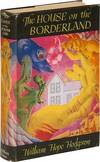

The Pecking Order : Which Siblings Succeed and Why
by Dalton Conley
- Used
- Hardcover
- Condition
- Like New
- ISBN 10
- 0375421742
- ISBN 13
- 9780375421747
- Seller
-
Seattle, Washington, United States
Payment Methods Accepted
About This Item
Synopsis
We want to think of the family as a haven, a sheltered port from the maelstrom of social forces that rip through our lives. Within the family, we like to think, everyone starts out on equal footing. And yet we see around us evidence that siblings all too often diverge widely in social status, wealth, and education. We think these are aberrant cases--the president and the drug addict, the professor and the convict. Surely in most families, in our families, all children will succeed equally, and when they don't, we turn to one-dimensional answers to explain the discrepancy--birth order, for instance, or gender. In this groundbreaking book, Dalton Conley shows us that inequality in families is not the exception but the norm. More than half of all income inequality in this country occurs not between families but within families. Children who grow up in the same house can--and frequently do--wind up on opposite sides of the class divide. In fact, the family itself is where much inequality is fostered and developed. In each family, there exists a pecking order among siblings, a status hierarchy. This pecking order is not necessarily determined by the natural abilities of each individual, and not even by the intentions or will of the parents. It is determined by the larger social forces that envelop the family: gender expectations, the economic cost of education, divorce, early loss of a parent, geographic mobility, religious and sexual orientation, trauma, and even arbitrary factors such as luck and accidents. Conley explores each of these topics, giving us a richly nuanced understanding that transforms the way we should look at the family as an institution of care, support, and comfort. Drawing from the U.S. Census, from the General Social Survey conducted by the University of Chicago over the last thirty years, and from a landmark study that was launched in 1968 by the University of Michigan and that has been following five thousand families, Conley has irrefutable empirical evidence backing up his assertions. Enriched by countless anecdotes and stories garnered through years of interviews, this is a book that will forever alter our idea of family.From the Hardcover edition.
Reviews
(Log in or Create an Account first!)
Details
- Bookseller
- ThriftBooks
(US)
- Bookseller's Inventory #
- G0375421742I2N00
- Title
- The Pecking Order : Which Siblings Succeed and Why
- Author
- Dalton Conley
- Format/Binding
- Hardcover
- Book Condition
- New
- Quantity Available
- 1
- ISBN 10
- 0375421742
- ISBN 13
- 9780375421747
- Publisher
- Knopf Doubleday Publishing Group
- Place of Publication
- New York, New York, U.s.a.
- Date Published
- 2004
Terms of Sale
ThriftBooks
About the Seller
ThriftBooks
About ThriftBooks
Glossary
Some terminology that may be used in this description includes:

